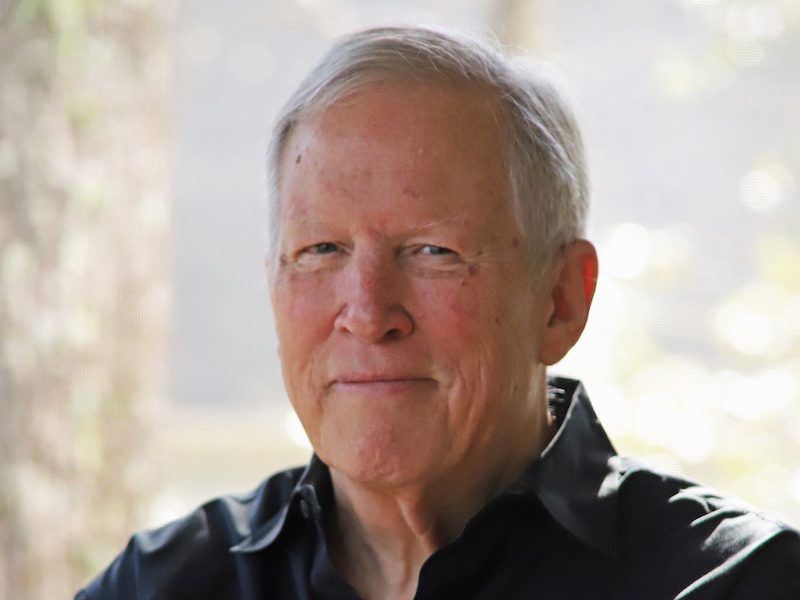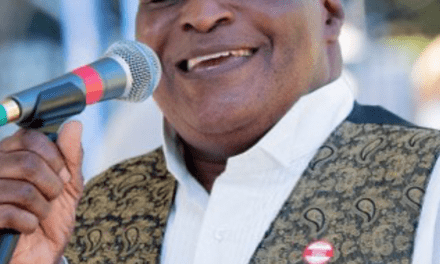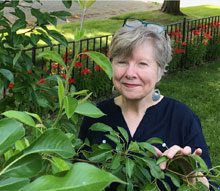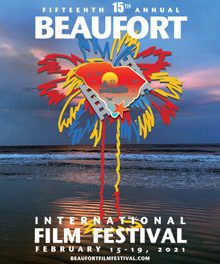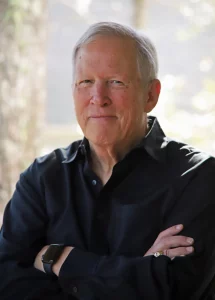
John Warley
John Warley’s a pretty impressive guy. He’s also humble. I say this because we’ve been friends for years and I never knew half of what I just read in the press kit that came with his new novel Jury of One.
For instance, I knew John was an award-winning author, but I didn’t know he’d written seven books. I knew that his bestselling novel, A Southern Girl, was praised by Pat Conroy as “stylish as a novel by John Irving and as tightly written as one by John Grisham,” but had no idea his published history of The Citadel (his undergrad alma mater) had led to his selection to write both the inscription for the college’s war memorial and The Citadel at War, a narrative history of the wars and conflicts in which Citadel alumni have made the ultimate sacrifice. I definitely didn’t know that NPR had selected his essay “Lingering at the Doors” for publication in This I Believe on Fatherhood.
I did know John had worked as an attorney for decades, an experience he drew on heavily when writing his terrific new legal thriller, which we recently chatted about…
Margaret Evans: John, you were still practicing law when you started this book. Tell me how it came about… and why it took so long to finish?
John Warley: In 1997 or ’98, I was practicing law full time when I began Jury of One. I must have read about a convicted felon serving life without hope of parole. Perhaps he (it must have been a male though I can’t recall a specific name or case) was young enough to be facing decades in a maximum security facility, and the grimness – the sheer infinity – of it inspired the idea put forth by Judge Borders in the novel. I wrote 4 or 5 chapters before setting it aside in favor of some now-forgotten distraction.
When I returned to it a quarter of a century later, the idea still resonated, so I picked it back up, this time determined to finish. Maybe several novels and a collection of short stories had by that time matured me as a writer. Or maybe it was COVID. If COVID represented bad timing, the Murdaugh saga was the opposite. On my best day I could not have timed this book better, when a sentence of life without hope of parole (absent successful appeal) barged into virtually every living room in America from a county adjacent to our own, where Jury of One is set.
ME: All of your main characters are decent, even admirable, people – and they all seem to have the best of intentions. And yet – there is also ambition. And lust. And pride. All those human foibles we once lumped into a category called “sin.” To me, your novel demonstrates how our justice system – despite being maybe the best one man has devised – can be subverted by the human beings who are charged with upholding it, no matter how virtuous they might seem, even to themselves. Is that something you were trying to explore?
JW: While living in Mexico (1993-1995) to write A Southern Girl, I heard many stories about the Mexican legal system, so different from our own. Corruption is endemic in so many third world countries, and the biggest advantage of our system over theirs is the integrity of the judiciary. Dan Borders represented the epitome of virtues needed to make our system the envy of the world, yet he, like all judges, is human.
But for me the story was less a cautionary tale about human frailty as about the power of a promise. The old adage about one’s word being his/her bond has become frayed at the edges in modern society. Vows exchanged “to have and to hold” and a promise to “uphold and defend the Constitution” have been gutted in favor of power, wealth, and a change of heart. I wanted to put two decent, fundamentally honest characters in a situation where their mutual reliance on the other keeping their word could be tested against forces designed to break it.
ME: Is your main protagonist, Judge Dan Borders, a stand-in for John Warley?
JW: Dan is not me. He is smarter, more committed to the law, and has a “judicial temperament” I lack. Rather than patterning him after myself or any particular judge I’ve known, he is the idealized man for the job he holds and the job to which he aspires in the book. If he and I share any common ground, it may be the road rutted by life’s lesson that bad things happen to good people, and we all travel that road if we live long enough.
ME: Jury of One is not a mystery novel but a thriller, so the suspense is not about “Who done it?” so much as “What happens now?” 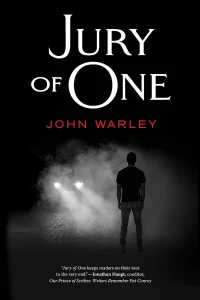 I typically prefer the former genre to the latter, but you made me care about your characters so deeply – especially Dan Borders – that “what happens now?” became a question of thrilling import. I felt like I was following Dan through an existential crisis, and I just had to know how he’d get through it. I had no idea where you were taking me until I arrived. And that twist at the end felt like a cherry on top! So, to get to my actual question: Did you know where the book was headed as you wrote it?
I typically prefer the former genre to the latter, but you made me care about your characters so deeply – especially Dan Borders – that “what happens now?” became a question of thrilling import. I felt like I was following Dan through an existential crisis, and I just had to know how he’d get through it. I had no idea where you were taking me until I arrived. And that twist at the end felt like a cherry on top! So, to get to my actual question: Did you know where the book was headed as you wrote it?
JW: The ending of the book surprised – shocked – me as much as it has early readers. In reaching it I experienced one of the true thrills of writing. Characters, even of your own creation, can surprise you, and when they do you awake to the magical moment that keeps you at your desk writing the next one. Jury of Two is already mapped out in my head, giving me a chance to revisit some of these themes and characters.
ME: I believe you went deeper with this novel than a writer of “legal thrillers” had to, and I applaud you for it! There’s a good deal of philosophical – even theological – musing going on, and it really enriched my reading experience, without ever becoming ponderous. Do you think the novel would have been as contemplative (is that the right word?) had you finished writing it back when you started?
JW: Margaret, I so appreciate you raising this question. As a writer, I’ve become an old man wandering in the genre woods, writing what I felt like writing. As Exhibit A, let me cite one of the best high-fives I’ve ever had from a reader, although it was not intended as a compliment: “I can’t believe the same man who wrote The Moralist wrote A Southern Girl.” Because I am (once again!) new to the genre of legal thriller, I probably broke some of the rules for writing one.
Perhaps one reason I’ve waited this long to attempt one is that stories where one event follows another, close on the heels of a third, forth etc. don’t engage me much. As John McCain and others have noted, character is destiny. Without character, the events lack for me what Faulkner said was the only justification for writing – the human heart in conflict with itself. Dan’s heart and Alana’s heart experienced that conflict in Chapter 1 and throughout the book. That’s what interested me as a writer and as their creator. Would the novel possess the same power had I finished it in 1998? I’d like to think that the quarter-century that has elapsed made me a better writer asking deeper, more profound questions. Whether that is true will be up to readers.
A Book Launch for John Warley’s Jury of One will take place on Friday, April 14 from 4:30 – 7pm at the Pat Conroy Literary Center, 601 Bladen Street, Beaufort. Books will be available for purchase and signing. The event is free and open to the public. www.patconroyliterarycenter.org

